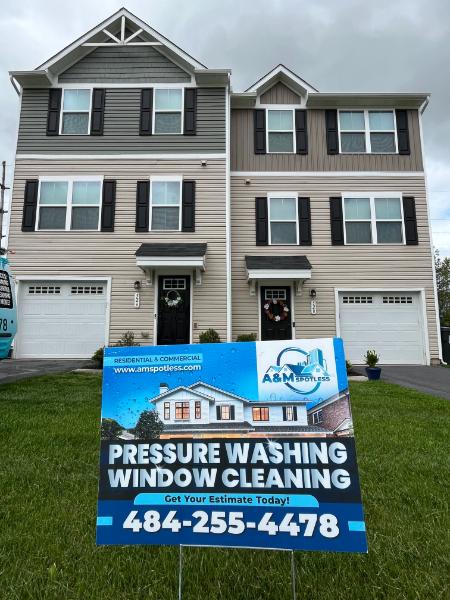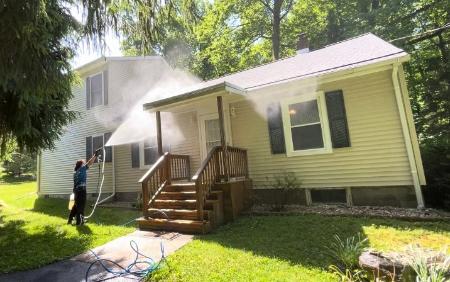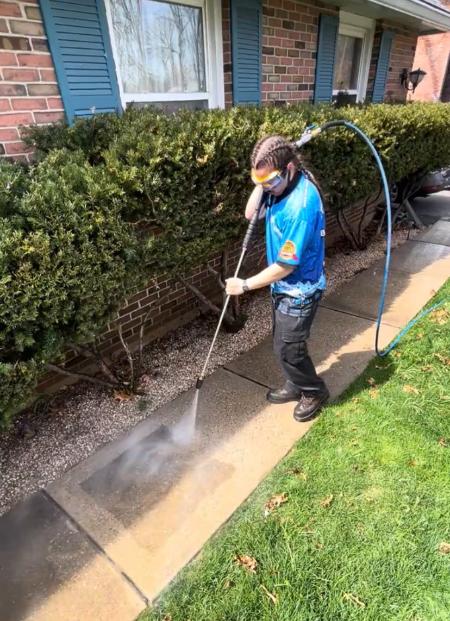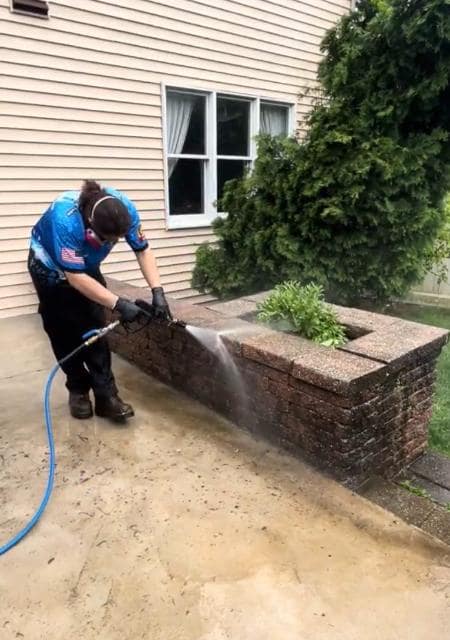What Is the Best PSI for Pressure Washing?

Understanding PSI in Pressure Washing
Have you ever wondered what those three little letters, PSI, mean when it comes to pressure washing? Let's break it down. PSI stands for pounds per square inch, and it's a measure of the pressure your washer is putting out. Think of it as the force of the water hitting the surface you're cleaning. The higher the PSI, the stronger the blast.
But why is PSI so important? Well, using the right PSI can make all the difference between a perfectly clean surface and one that's damaged beyond repair. Too low, and you won’t get rid of the grime. Too high, and you might strip paint, gouge wood, or even break windows.
Here’s a key tip: Always start with a lower pressure setting and test it on a small, hidden area first. This way, you can see if it's doing the job without causing any harm. And don’t forget to use the right nozzle – it helps control the spray and pressure.
Recommended PSI for Common Cleaning Tasks
When it comes to pressure washing, one size definitely does not fit all. Different tasks require different PSI levels to get the job done right without causing damage. Here’s a quick guide to help you choose the right PSI for some common cleaning tasks:
- Vehicles (Cars and Trucks): For washing your car or truck, aim for a PSI between 1200 and 1900. This range is gentle enough to avoid damaging your vehicle’s paint but powerful enough to remove dirt and grime. Use a wide-angle nozzle and keep a safe distance to ensure an even clean without any scratches.
- Wood Decks and Fences: Wood surfaces like decks and fences need a lighter touch. A PSI between 500 and 1200 is ideal. This pressure is strong enough to get rid of dirt and mildew without gouging the wood. Use a fan tip nozzle and move with the grain of the wood for the best results.
- Concrete Driveways, Sidewalks, and Patios: Concrete can handle higher pressure, so for these tough surfaces, you’ll want a PSI of 3000 or more. This high pressure will help you blast away stubborn stains, oil spots, and grime. For deeper cleaning, a rotary nozzle can be very effective.
- Outdoor Furniture: Outdoor furniture varies in material, so it’s best to start with a lower PSI, around 500 to 1500. This range is usually safe for plastic, wood, and metal furniture. Begin with the lowest setting and adjust as needed to avoid any damage.
- House Siding: House siding can be a bit tricky because the material can vary. Generally, a PSI between 1200 and 3000 works well. For vinyl siding, you might stick to the lower end, while brick or harder materials can handle the higher end. Always use a wide-angle nozzle and avoid spraying directly at windows and door seals to prevent damage.
By following these guidelines, you can ensure that you’re using the right PSI for each job, making your cleaning tasks efficient and safe. Remember, it’s always better to start with a lower pressure and work your way up as needed.
Additional Considerations for Choosing

Choosing the right PSI is crucial, but there are a few other important factors to keep in mind for effective and safe pressure washing. Let’s take a closer look at these additional considerations.
- Surface Material Sensitivity: Different materials have different sensitivities to high pressure. For instance, softwoods can easily get damaged with too much pressure, while concrete can handle a lot more force. Always be cautious and start with a lower PSI, gradually increasing it until you find the right balance. This approach helps you avoid accidental damage and ensures you’re cleaning effectively.
- Pressure Washer Accessories: The accessories you use with your pressure washer can make a big difference in your cleaning results. Here’s a quick rundown on some common accessories:
Nozzles
Nozzles come in various angles and are crucial for directing the water spray correctly.
- 0-degree nozzle
Provides a concentrated, high-pressure stream, perfect for tough stains but risky for delicate surfaces. - 15-degree nozzle
Creates a narrow fan of water, ideal for removing paint or stubborn dirt. - 25-degree nozzle
Delivers a wider spray suitable for general cleaning tasks. - 40-degree nozzle
Offers the widest spray, best for gentle cleaning on surfaces like windows and cars.
Extension attachments:

These attachments help you reach high or hard-to-access areas, making your cleaning more comprehensive without requiring a ladder. Using the right nozzle and attachments ensures that you’re applying the correct pressure and coverage for each specific task.
Environmental Factors
Weather conditions can significantly affect your pressure washing effectiveness. Here are a few environmental considerations:
- Wind: On a windy day, water and debris can blow back onto areas you’ve already cleaned, making the task more difficult.
- Temperature: Extremely hot weather can cause water to evaporate too quickly, reducing its cleaning power. Conversely, very cold temperatures can make water freeze, creating a slipping hazard. Ideally, choose a calm, mild day for your pressure washing projects to achieve the best results.
By paying attention to these additional considerations, you can enhance your pressure washing efficiency and avoid potential pitfalls. Remember, taking the time to prepare and using the right tools can make all the difference in achieving a pristine clean.
Summary of Pressure Washing Key Points
In this article, we’ve covered the essentials of selecting the right PSI for pressure washing various surfaces. From delicate wood decks to sturdy concrete driveways, using the correct PSI ensures effective cleaning without causing damage. Here’s a quick recap:
- Vehicles: 1200 to 1900 PSI
- Wood Decks and Fences: 500 to 1200 PSI
- Concrete Driveways, Sidewalks, and Patios: 3000 PSI or more
- Outdoor Furniture: 500 to 1500 PSI
- House Siding: 1200 to 3000 PSI
Final Tips
Safety and precision are key when pressure washing. Always start with a lower pressure setting and test it on a small, inconspicuous area first. This approach helps you gauge whether the pressure is appropriate without risking damage to the entire surface. Use the right nozzle and accessories to enhance your cleaning efficiency and effectiveness.
Recommendations for Professional Cleaning Services

If you prefer to leave the cleaning to the experts, seek recommendations for professional pressure washing and soft washing services in your area.
Look for companies with experience in both pressure washing and soft washing, and inquire about their expertise in handling specific types of surfaces.
Trust the professionals at A&M Spotless today. For any house washing grime, give us a call at (484.255.4478). GET YOUR FREE SOFT WASHING OR PRESSURE WASHING QUOTE TODAY!!!